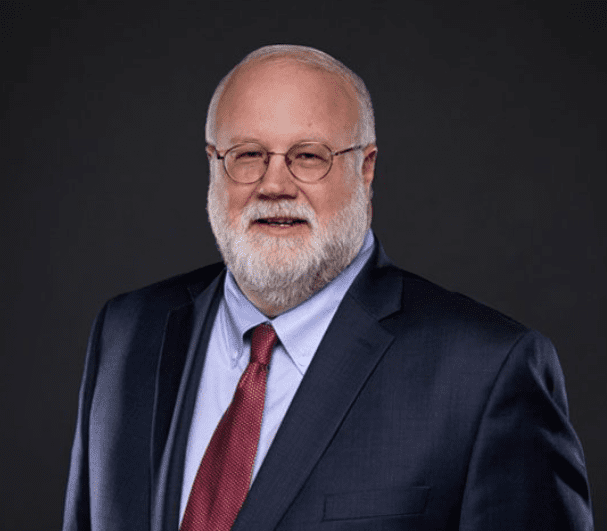On May 26, 2021, Longview personal injury lawyer Nelson J. Roach won $1.1 million in a Texarkana slip-and-fall case against retail giant Walmart. It’s one of the largest verdicts in a Texarkana personal injury case.
The story dates back to a rainy day in December of 2017, when 71-year-old Julia Mejia visited the Walmart in Mount Pleasant, Texas. While there, Mejia tripped and fell on a floor mat near the store’s garden entrance. It had become saturated with rainwater and buckled by shopping carts and foot traffic.
As a result of the fall, Mejia suffered a compression fracture in her back and permanent nerve damage. She developed chronic pain in her back and leg and had to quit her full-time job as a custodian at the Region 8 Education Service Center in Pittsburg, Texas.
“I had medical expenses I could not pay, so I called Walmart for help,” says Mejia. “They were rude to me and told me it was my own fault.”
According to Mejia, the company tried to convince her the back pain was related to her preexisting medical conditions. She suffered from osteoporosis and arthritis, and she had undergone shoulder surgery and knee and hip replacements.
Mejia spoke with three different Longview personal injury lawyers. All refused to take her case due to her previous health problems. Then her boss suggested she contact Nelson Roach.
Mejia was doubtful that he would take her case. A founding partner of the Roach Law Firm, he has practiced law for over 30 years and is known for handling the Lone Star Steel litigation, the Red River Army Depot litigation, the Freeport-McMoRan mining contamination class action, the DataTreasury patent litigation, and other huge cases.
Roach surprised her. As he has done with many clients in the past, he agreed to take her case even though others had turned it down.
“No good case is too big or too small,” says Roach. “I was impressed by Julia’s work ethic and charmed by her smile. Her case had its challenges, but Julia made up for them. She has worked at the same place for 25 years and wanted to continue working full-time even though her chronic pain made it impossible. On top of this, Julia was a single mother who raised four sons, two of whom went on to serve in the U.S. Marines. I was proud to take her on as a client.”
Roach filed suit in federal court in Texarkana. He quickly found himself in a fight over surveillance video showing Mejia’s accident. Walmart refused to hand it over.
Roach persuaded the court the video contained key evidence, and Walmart finally produced a copy. It showed the floor mat Mejia tripped had remained buckled for at least 30 minutes prior to the incident. At least three employees in its vicinity had failed to straighten it.
Roach also uncovered evidence that Walmart knew it needed to station a greeter at the garden entrance during rainstorms, in order to monitor floor mats.
Under Roach’s questioning, Walmart admitted the buckled floor mat presented a hazard and that employees should have replaced or fixed it. The company also acknowledged that the mat failed to conform to guidelines set by the American National Standards Institute (ANSI), an organization that develops safety standards for major corporations.
According to testimony provided by her doctors, Mejia will be in chronic pain for the rest of her life. Her spinal specialist told the court occasional injections might reduce her pain, but that it would never go away completely. Because of osteoporosis and her other health problems, additional surgeries are not an option.
Walmart refused to fold its hand. The company closed the trial arguing that Mejia’s preexisting medical problems caused her pain, rather than the injuries from her fall.
After retiring, the jury deliberated for four hours.
When its members returned, they delivered a verdict in Mejia’s favor. They awarded her $1,120,257.55, one of the largest jury awards won by a Longview personal injury firm in a slip-and-fall case.
Up to that point, Walmart had never offered Mejia more than $150,000 to settle the case.
“I am so thankful that Mr. Roach had faith in me,” says Mejia. “Walmart’s lawyer tried to confuse the jury, but he was able to show the jury that my case was really simple and straightforward. I owe Mr. Roach. He changed my life.”
“This case had almost everything working against it,” Roach says. “Walmart is one of the nation’s largest and wealthiest corporations, and it had excellent legal representation. My client’s preexisting health problems also gave the defendant ample opportunity to confuse the jury. But in the end, the jurors did the right thing. It just goes to show that lawyers shouldn’t give up on any good case, no matter how high the deck is stacked against them.”

Nelson J. Roach is a partner at the Roach Law Firm in Daingerfield, Texas. Over the last 30 years, Nelson has represented thousands of clients in many groundbreaking cases. Read more…

